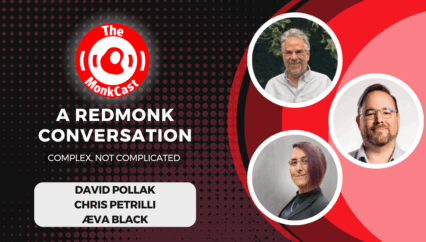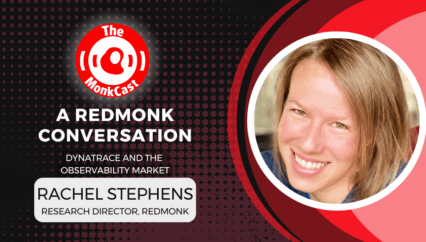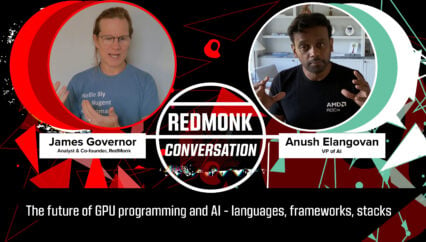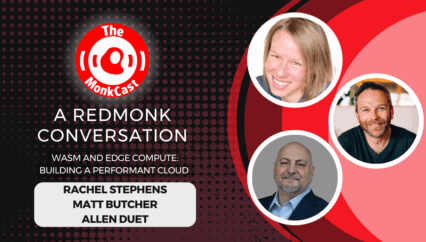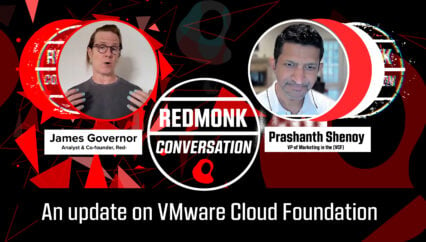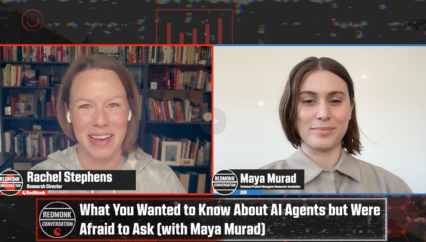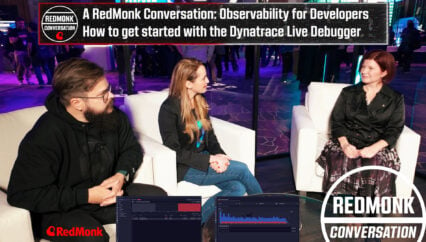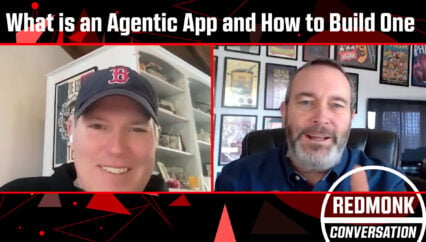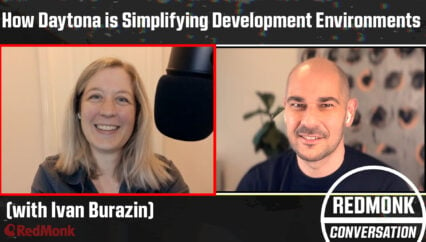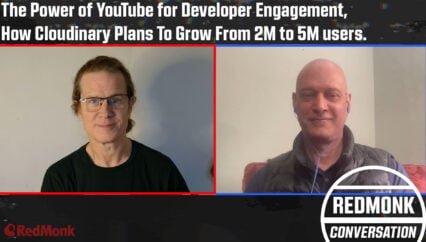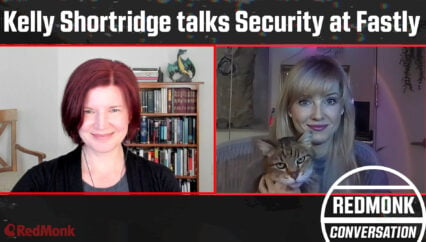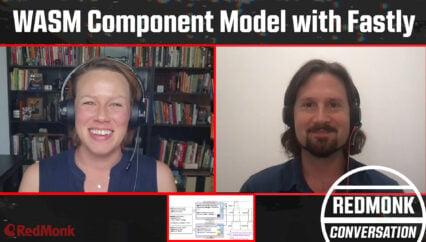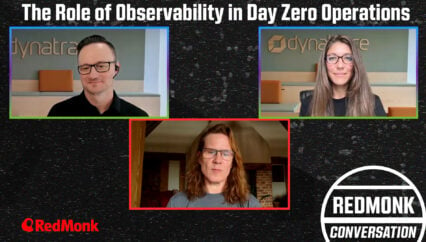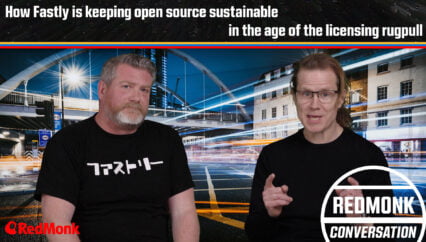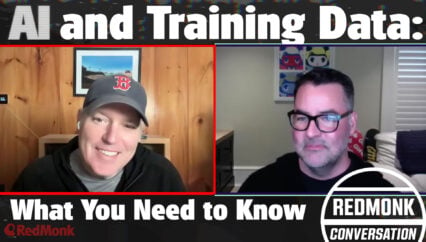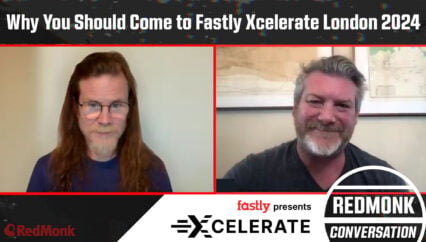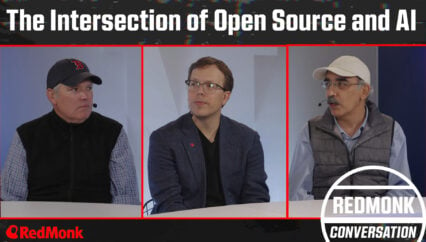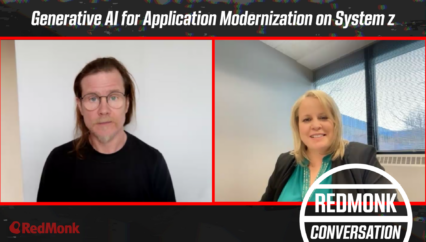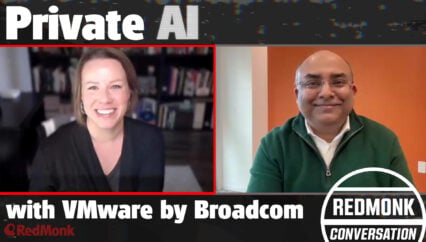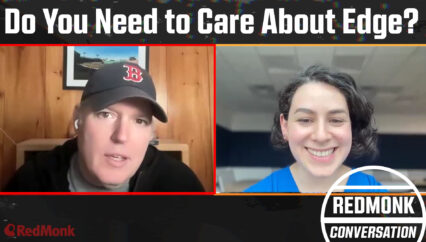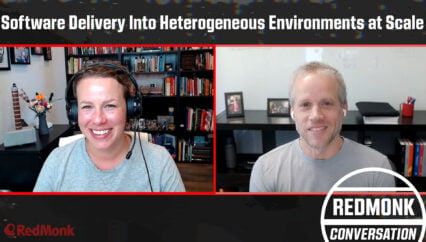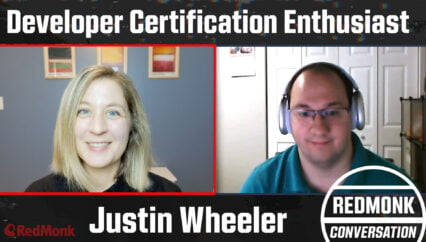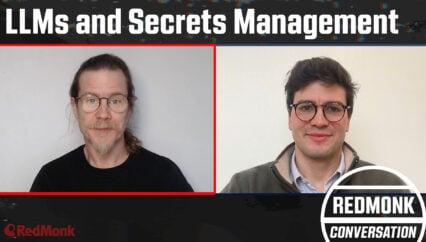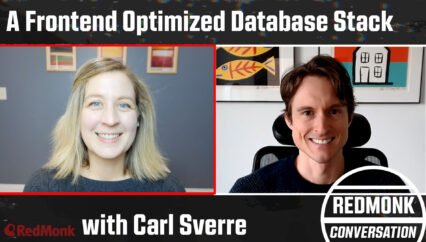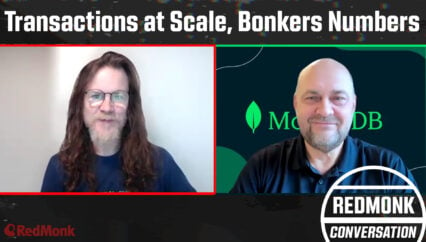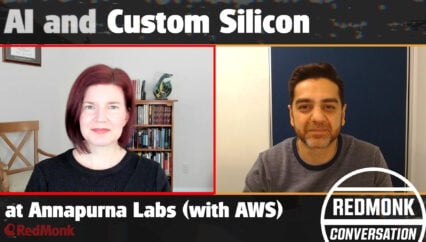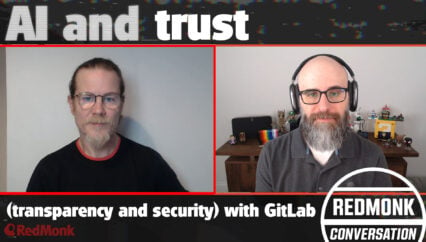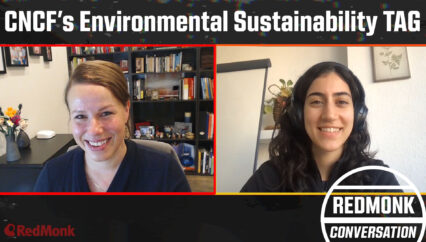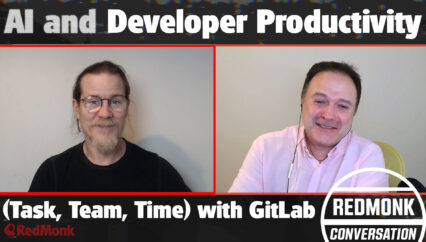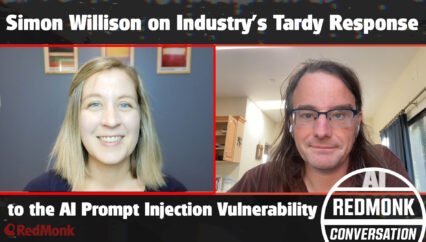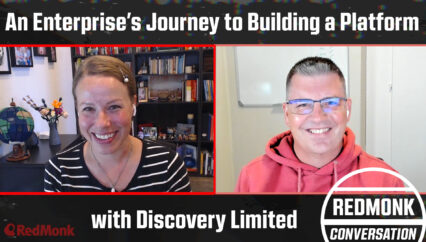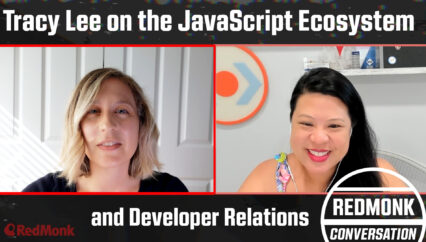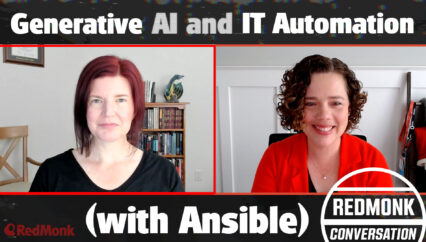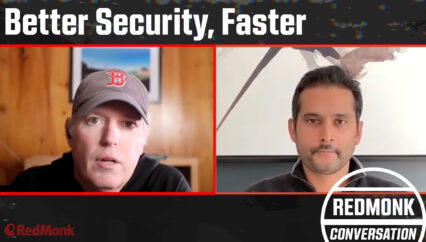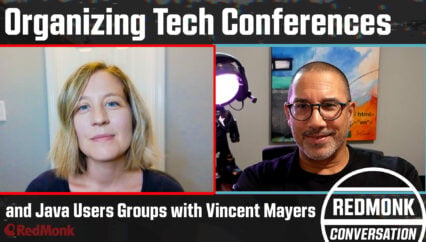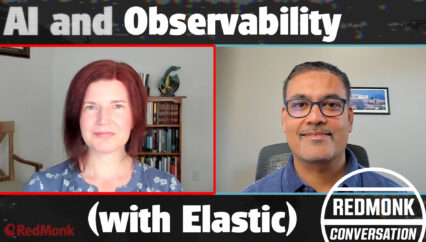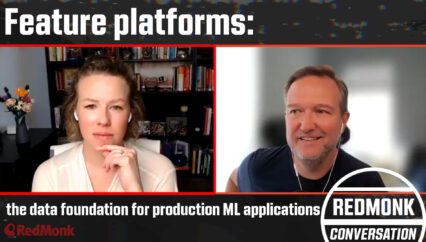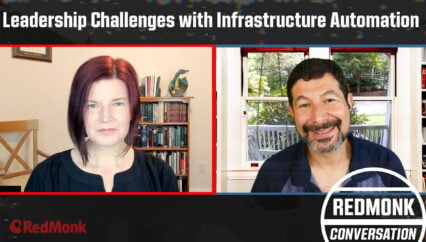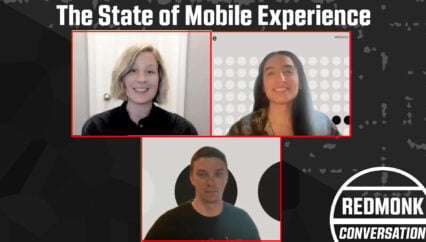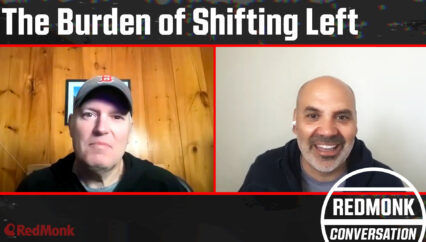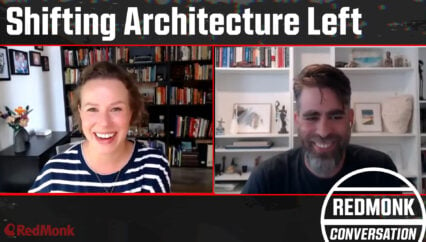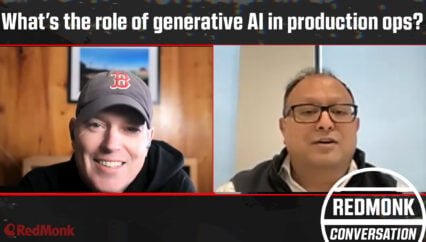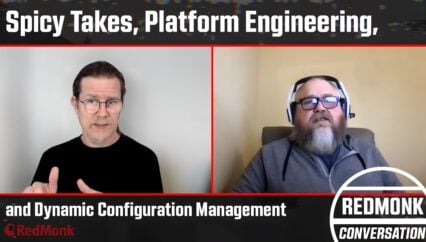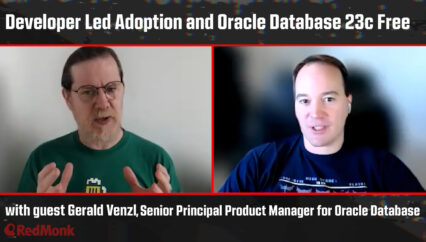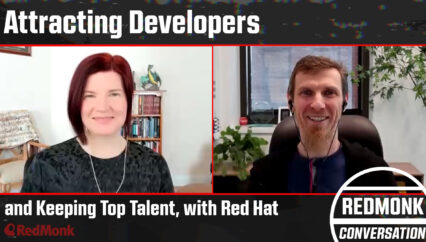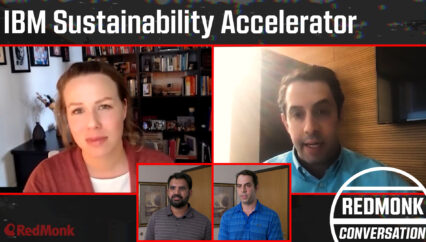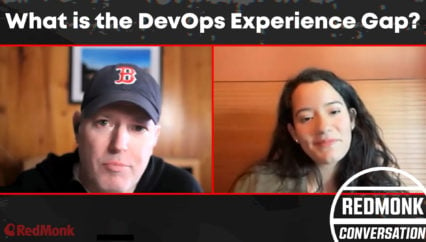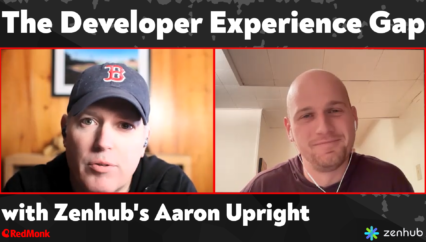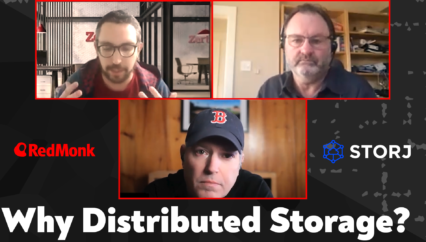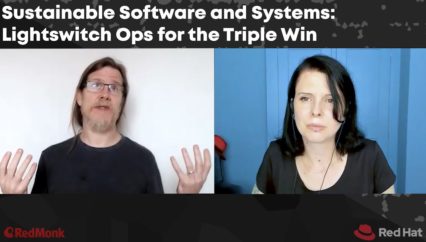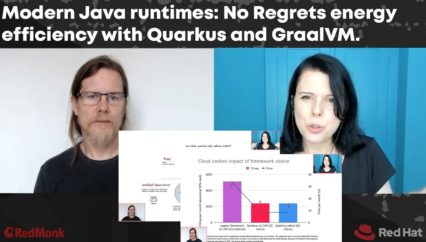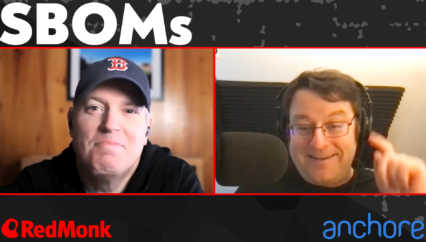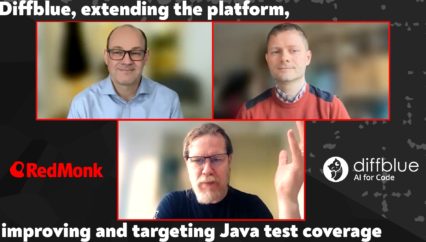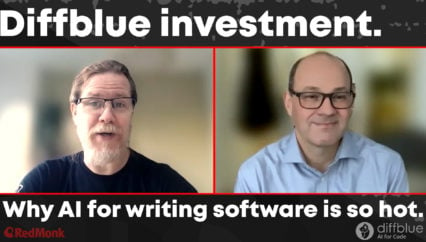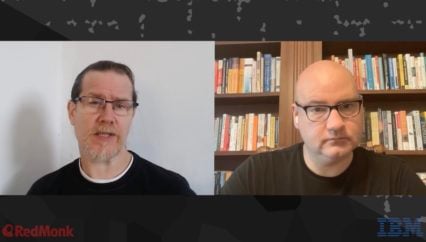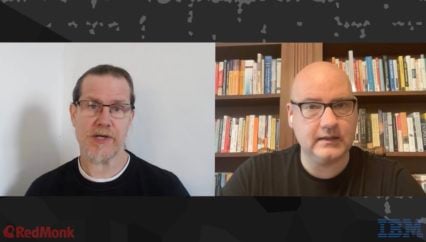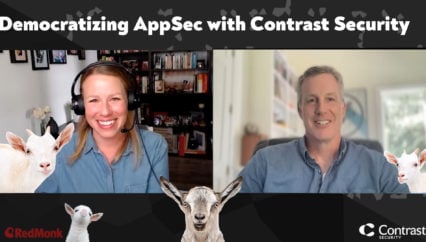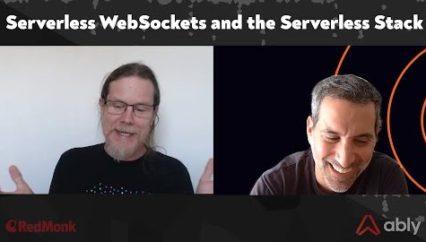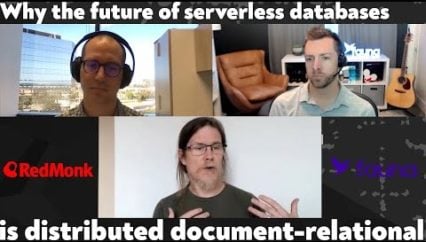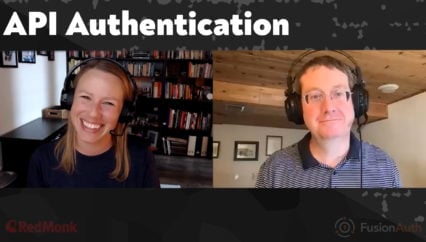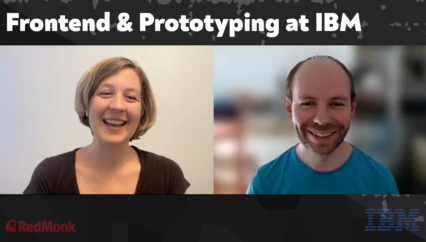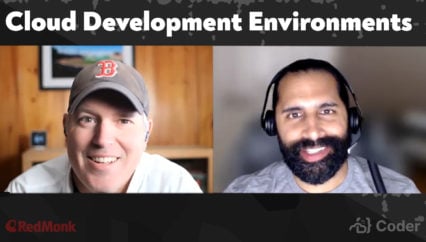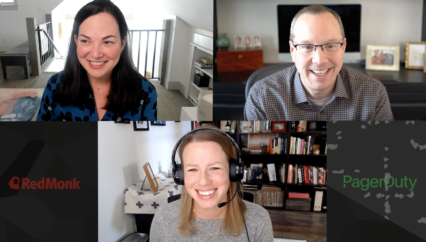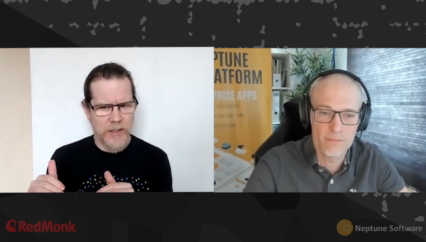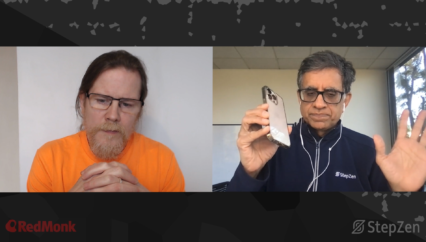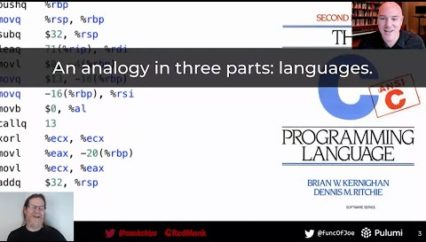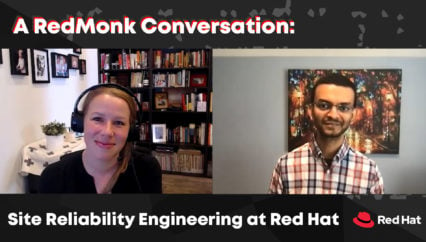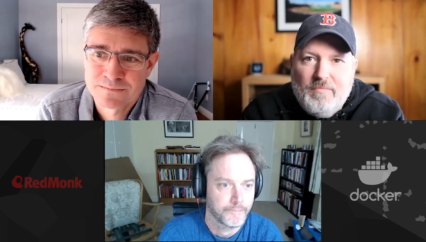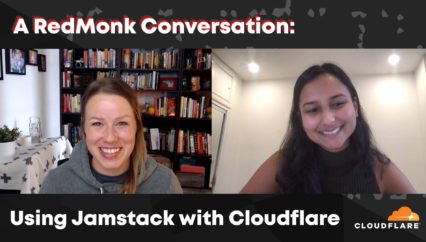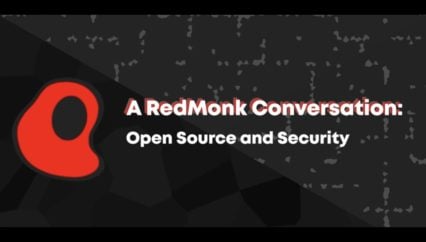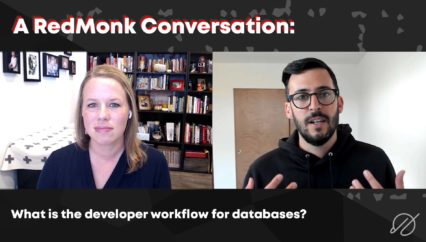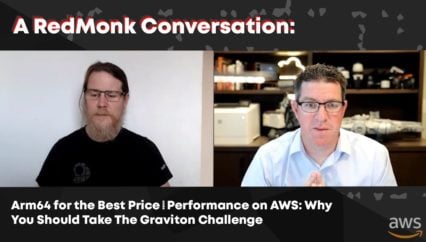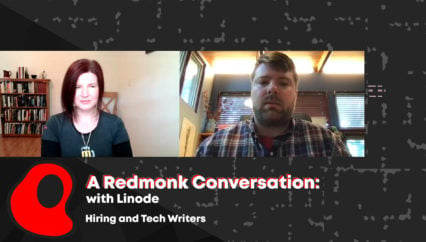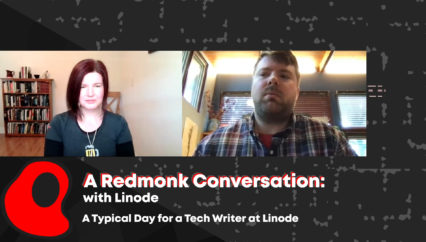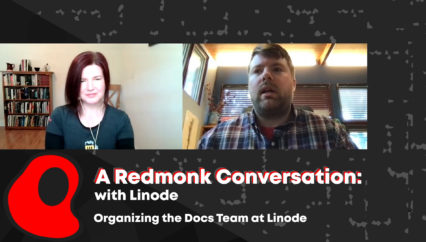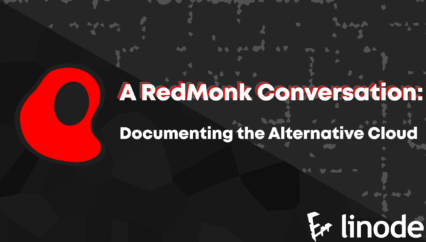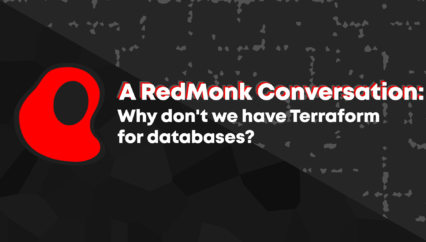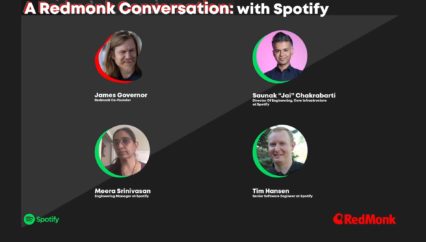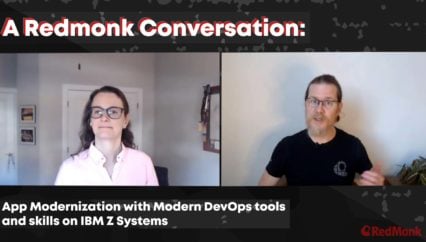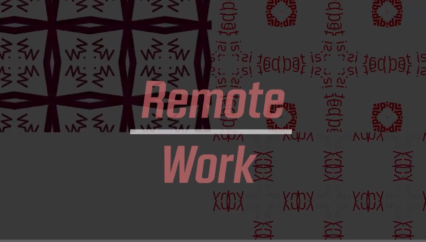Join RedMonk analysts James Governor and Kate Holterhoff as they chat with Dan Moore about Hacker News, the social news website for developers. This conversation digs into significant questions concerning this network that include not only what makes it unique, but also the special sauce that makes developers flock there. Moore suggests strategies for vendors hoping to successfully engage this community, and more general best practices for becoming involved.
This was a RedMonk Conversation, not sponsored by any entity.
- I Sell Onions On the Internet: https://news.ycombinator.com/item?id=19728132
- Dan on socials: Twitter, LinkedIn, Hacker News
Rather listen to this conversation as a podcast?
Transcript
Kate Holterhoff: Hello and welcome to this RedMonk Conversation. My name is Kate Holterhoff, Senior Analyst at RedMonk. And with me today, I have Mister Monkchips himself, James Governor, my co host and co founder of RedMonk, as well as our guest, Dan Moore, Solutions Architect and Head of Devrel at FusionAuth. Dan, thanks so much for being here to speak with James and I.
Dan Moore: Thanks for having me. I’m looking forward to the conversation.
Kate: Okay, so let me set the scene here for what we hope this conversation will cover. And James, feel free to chime in. At re:Invent, Dan, James and I spent some time palling around the Venetian looking for the best vendor sponsored lunch, as you do, and we got to talking about Hacker News and its place in the Devrel community. So the motive for this is that Dan is active on Hacker News. And James and I, not so much. And I know it’s Dan because instead of using an incognito pseudonym, he uses the same handle as his Twitter account, or X, if you prefer. So I mentioned not only that I see his posts often, but also that we appreciate whenever Dan posts James or my blog posts on Hacker News, which he’s done a couple of times. So does that sound about right, James?
James Governor: Yeah, I think that’s a great summary of where we are. I mean, the simple fact is, I’d say, here we are. It’s 2024. Hacker News, it’s an interesting one, because on the one hand, there are a lot of people like, oh, there are some bad behaviors associated with the network and some sort of complaints and so on. But for anyone that is trying to get developers to adopt their tools, that is trying to communicate with developers, they all want to be on Hacker News. On the one hand it’s like, oh, it sucks. And on the other hand, it’s like, no, it’s great. It’s a great, great tool. I mean, arguably, Twitter is the same. Oh, Twitter is terrible. But it still remains actually quite a good tool. And I think that certainly from my perspective, it is an incredibly useful resource, even if there are some assholes on the network. So, assholes aside, I think that investment in time and the question of why you would invest in that is something that Dan, I know, has done. During lockdown, he was nice enough to come to — I have a little community called flyless, and he gave a great talk to that community about why and how it was worth investing that time in Hacker News.
So, yeah, I was just keen to capture that, because as I say, everybody wants to get that — everyone wants that conversation on Hacker News. But then they’re like, how do we get this? Is there a way we can game this? What are the opportunities there? Dan knows all of the things. And so I’ll shut up and be like, Dan, you know, is that right? Why do you feel it’s worth investing your time in Hacker News?
Dan: Sure. I mean, the first thing I’d say is, I actually saw a couple of weeks ago, I think, somebody advertising for a Devrel that was just focused on Hacker News. Like that was only thing that they were going to be doing, which to me seems counterproductive, but indicates that there is a desire and demand out there for this. I mean, I guess I would start with, well, I guess the first question is, how familiar are your listeners with Hacker News at all? Do they know?
Kate: I think we should lay a foundation. Yeah. So what is Hacker News, and why do we care about it?
Dan: Sure, sure. Yeah. So Hacker News is basically a link sharing and discussion website. And speaking of being in the 2020s, it looks like it was written in the 2000s. And its text only, very bare bones. You can sign up for an account, you can also read it anonymously. Those are your choices. And then when you sign up for account, you can submit links and you can upvote links or down vote. Uh, can’t downvote links. And then you can comment on them. So with comments, you can upvote a comment or downvote a comment, or you can just add your own comments. So it really is more like a, like an old school bulletin board. And the reason why it’s so attractive is both the audience, there’s a ton of, especially, well, it was founded by the same people who did Y Combinator. They actually did Y Combinator after Hacker News. Paul Graham did. And so Y Combinator folks are still very prevalent on there. There’s a really heavy tech focus, and it’s hard to find exact traffic numbers, but there’s about 10 million users. And I have had some posts go to the top of Hacker News, and they get like 20 or 30,000 visits kind of thing.
So it’s a fair amount of traffic and it’s very concentrated. I can talk later about what that traffic actually looks like and kind of what the benefits are of having a page, a post go there, but that’s basically it. And what else do I have? It’s lightly moderated. There’s a couple of humans there who actually will respond to email, or I’ve gotten a couple emails from them. I actually pitched them on coming and talking to that group James, that you talked about, they said no, but they at least responded to the email. And then there’s a lot of auto moderation too. So there’s definitely some rules around this. And I like to think of it like a community, just like you or I would react negatively or we probably do react negatively when someone comes, knocks on the door in our house and wants to sell us something. Hacker News is the same way. It’s really an online community and if you want things to go well for you there, you want to treat it like that. You don’t want to just treat it as a dumping ground for your links.
James: Yeah, I think that’s the thing. I mean it just, we have that whole thing about like Devrel or dev marketing. And as I said, anybody that is launching a developer or infrastructure related product is definitely going to want to, in an ideal world, be featured on Hacker News, front page, whatever. But you can’t treat it as marketing in the sense that, yeah, you can’t just show up and be like, and pitch. And that’s the same as frankly any good tech conference. Nobody wants to see a pitch, they want somebody to be like, oh, here’s an interesting thing. This is what we built with it. This is what we did with it. In that sense, to put about it being community is, it is a little bit like, you know, it has some affinities with what you would want from a good conference in that, hopefully. Except there are a bunch of people that are very willing to just shout, no, you’re a goober.
Dan: Totally. Yep.
James: Which ideally you’re not at those tech conferences.
Dan: Yeah, I mean, so the comments that I’ve gotten on posts that I’ve had kind of pop up. So it’s actually worth breaking down a little bit more of the what? Like when you submit a link, it goes to the new page and there are not that many people who go to the new page and it’s just a continuous stream. Like you can actually go to Hacker News. It’s called news.ycombinator.com. I’m sure we’ll put a link in the show notes, but if you go there and you go to the new link, you can just see this stream of things. And occasionally once you get basically four or five points that are… Again, because of the moderation, you can’t really send this link to all your friends and say hey, please upvote it. They will detect that kind of voting ring. But if it gets organic upvotes to four or five, it moves on to the second page or the first page, and there’s a complicated algorithm that changes over time, but that’s where the traffic comes from, is the front page. That’s where most people go.
James: I think one thing that we didn’t do, actually, Dan, on the intro, necessarily, is you’re kind of Hacker News famous. I mean, you know, you’re Dan Moore. But I mean, there is a reason why people should listen to you.
Dan: Sure.
James: You know, tell us a bit about your bona fides, because you spent a shit ton of time on this platform, and that has led to some interesting… you know, you’ve talked about the amount of traffic it can drive. Like, you know, who are you on Hacker News? Yeah, you’re Dan Moore. But, like, let’s talk a little bit about the juice you have.
Dan: Yeah, yeah, yeah. That’s a fair point. So I’ve been on Hacker News since, like, 2012, and I have a karma of 63,000, which puts me at, like, number 45 or 46 on the top 100. I’ve submitted at 12,000 stories, and then I don’t have my count of comments, but, yeah, so I spent a fair amount of time on there, and I’ve definitely had a number of things go up above, like, 100 points, which pretty much means you’re on the hanging out homepage for a number of hours. Some stuff is my stuff. And then one of my favorite parts about Hacker News, and one of the things I like to do, which you alluded to, Kate, is I like to post other people’s things that are interesting. I’ve had you all, and I’ve had other folks that have… I’d say it’s taken a ride on the Hacker News train, where you get to be on the front page and you get to see the comments, and you get the traffic. And it’s a real fun, exhilarating experience. And it’s fun to be able to hand that to other people with nothing other than posting a link that I think is worthwhile content.
Kate: That’s amazing. So when you say a fair amount of time, how many hours are we talking about a day?
Dan: I would say I probably spend less than some people. I’m probably maybe 30 to 40, 45 minutes a day. Sometimes it’s more, and actually, that’s actually worth breaking down. So if you want to interact with Hacker News, there’s two main ways to do it. The first is submissions, and that’s obviously easier. And then there’s commenting. So commenting, you have to, like, write text. It needs to be relatively intelligent. It takes longer. I did a breakdown of the top ten folks. And where’s that? I have it written down someplace. I want to say, oh yeah, here it is. Three. You basically can look at every — so that’s another actually — point is, everyone’s posts are all public, so you can go look at anyone’s profile. You can see everything they have commented, all the links they’ve submitted. You can’t see things they’ve upvoted or downvoted. Of those top ten posters, three of them got most of their points by commenting, and then six of them by submitting, and then one was kind of like evenly split, and that was totally anecdotal. I looked at the first page of their interactions, so I am more of a submitter.
I will find interesting things. I will submit them. I do comment on stuff occasionally, but there are people who spend a lot of time commenting. patio11, Patrick McKenzie is an example of someone who spends a lot of time commenting, and most of his points are from that. So obviously link submitting is much quicker. You need to find the links, you need to bash them up. You can only submit four links at a time on that new page. You can’t have more than four. It’ll say, please don’t submit so much. Which is again, as a kind of a spam prevention measure, but I’ll batch them up and then I’ll do like four in the morning, and then like, you know, four at noon and maybe four at some other time.
Kate: One of the things that surprised me about the submissions to Hacker News when I was just kind of starting to become involved with the community, is how many don’t actually relate to tech. They can. Yeah, I mean, I should have kind of come up with a range of what examples here. But, you know, I mean, they just, it kind of goes across a range. And what further surprised me is the number of people who are experts in these sort of disparate fields. I mean, I anticipated that it was going to be a lot of software developers, and of course it is. But there’s also people who know a lot about, like, biomedical science and yeah, like philosophy, you know, things that you just wouldn’t anticipate. History. I mean, there just seems to be an expert in every domain on Hacker News, and so for whatever reason, they’re all interested in just the sort of the oeuvre there, like the corpus of links which draw the most common. I mean, it was just remarkable to me. I didn’t realize there were that many experts in the world.
Dan: Yeah, my favorite, I think, post that is kind of bizarre is: I sell onions on the Internet. And I can dig it up, but it was like this person who was just talking about how they sold onions, like they were a farmer who sold onions on the Internet, and they talked about their story and it was like totally random. But anything that’s about, that is of interest to nerds of any stripe is fair sense. That’s kind of my thing. If it’s not going to be interesting to someone who’s deeply interested in the topic, it’s probably not going to do very well on Hacker News. So I would say over the last couple of years, it’s kind of trended more towards some business and financy things too. So it’s not just pure tech, but stuff about the housing market in the US does pretty well sometimes. So there’s some aspect of the audience being interested things that normal people are interested in too. But definitely the deeper and harder core your article is, especially if it’s about, I mean, it doesn’t need to be about tech, but like if it’s really, really deep about gardening and it has data and images and things like that, or it just is a really good, interesting story. Both of those do well on Hacker News too.
But I do want to say one thing that is worth noting for all your listeners, is random luck is there too. Sometimes something strikes and then people are interested in it. Sometimes if you just need to interest those four or five people that upvoted on that new page, and then it’ll get there again on the homepage and take on a life that’s all its own. You know, my own personal best Hacker News post was a post about slack versus forums for developer support. And it got like 1500 points and I didn’t even submit it. Like, I think someone else submitted it and it just happened to strike a chord and —
James: Well everybody was trying to work it out. I mean, that was and sort of remains a live issue. We are all asking that question. So it doesn’t surprise me necessarily, but it was nice of someone else to submit it. I’m glad it got that juice.
So, Dan, one of the things I talk about is that the fundamental forces of the universe are basically outrage and confirmation bias. Those are the two things that dictate human behavior and the physical laws of the universe, outrage and confirmation bias. So when we look at social, that’s certainly the case. The algorithm tends to favor the outrage. So we certainly see that on YouTube, constant red pilling. We see that in the conversations on Twitter. The grifters are always driving the outrage narratives. We see it in the broader culture. Is that true of Hacker News? Are people looking for things that confirms their bias and outrage, or is it somehow an outlier here? And it’s truly nerdery that is not so outrage driven.
Dan: I mean, I’m obviously biased because this is a community that I want to spend a lot of time in and I like. I think it’s less driven by outrage and confirmation– maybe not so much confirmation bias, but outrage. I think if you are an a-hole, if you are doing things that you would not want someone to do in a neighborhood or community, within certain… you will get downvoted and you will also — I’ve seen moderators chime in and say, hey, that behavior is not acceptable here, even to the point of, like, disconnecting comments from the current thread. So I think outrage, except for if it’s outrage towards, like, employers return to office like that, I think is fair game right now on Hacker News. But general, the kind of things that people do on X or Twitter is kind of poo pooed there, right? They really want… Your comments, they don’t want you to plus one the comments, they want you to really have substantial comments. As far as confirmation bias, I think that is much, that’s really on the nose, James. Like, I think that there’s a ton of that, and you can get some traffic by presenting things that kind of work against people’s confirmation bias.
People, I think that nerds are… I don’t want to say that they’re not human in terms of searching for confirmation bias. I think they are. I think that a lot of, maybe more than other communities, nerds get, like, puff themselves up or think better themselves if they take an alternative stance. And so that kind of can play into the community, too, right? Like, oh, everyone thinks you should buy a home. Here’s a methodical reason why you should rent. And if it’s logical and rational, in some cases, that can interest people that are running around in Hacker News.
James: Yeah, I mean, we see it on our programming language rankings. You know, like, anytime they come out, you know, someone will come and they’ll be like, CSS is not a programming language. Outrage. Or where is COBOL? You know? And you’re like, well, funnily enough, it’s not so well represented in the places where we’re getting our telemetry from. So, yeah, I mean, I think that’s one of the reasons I asked. And certainly, you know, like, if you are, I think Rust has crossed over into being somewhat mainstream. But certainly for a while there, you had people that were like, perhaps they were learning Rust, maybe a weekend kind of activity. There weren’t so many jobs in there. And as material began to come out like, hey, Rust is going to be a systems programming language of the cloud and so on, a lot of people would get excited and want to share that because it confirmed that bias that they were making the right choice. Certainly in around programming languages. Frameworks, you see similar sorts of behaviors. Yes, I’ve made the right choice, and I think that’s just part of the tech social game.
Dan: Totally. Well, I mean, when you speak of those things, it’s people’s identity. Well, not even their identity. It’s a career too, right? It is scary to be out there and be a developer and be like, what do I pick? And of course, if you pick something, you’re going to want to think that you’re right, because it’s scary to think that you made the wrong choice. Ask all the Perl developers right now.
I do want to talk about like, the benefits. We talked a little bit about the traffic of Hacker News, but like, there are benefits beyond the traffic. And I think that you should think about those if you’re trying to engage real quick. The first is that those comments, even though they, some of them can be snarky and scary, they can be. You’re getting a lot of attention from, as you mentioned, like a lot of experts, right? Like a lot of people that are very smart and trying to prove, trying to earn those karma points and make good, intelligent comments. So I posted FusionAuth’s pricing page, or, no, it was something about FusionAuth. And then people got to the pricing page and were like…
And they replied on the comments. They’re like, this is confusing, this is dumb. Why is it like this? And that was useful commentary to us. The other effect that I found surprising is there’s an echo effect. So if you get something on front page of Hacker News that’s about Ruby, for instance, chances are very high that it will get picked up by Ruby newsletters, Ruby Facebook programming groups, and there’ll be like a bounce a couple of weeks later for that post and that information.
James: Yeah, that makes sense. So — go ahead, Kate.
Kate: I just, you know, this is kind of a bit of a pivot, but I think in terms of the experts on there, I do spend a lot of time thinking about like tinkerers and folks who are hobbyists, and that seems to be a big part of the community. There that a lot of times I’ll see links to special projects that maybe expand on something existing or that do something completely unusual and exciting. And then, you know, again to that echo effect, you see how you get this sort of corpus of experts who then are able to amplify that project and suggest ways to connect with other projects and kind of empowering these folks who maybe spent hours on this sort of little hobby project that they created on their own, probably open sourced, and now they have this tremendous audience and a fan base almost of folks who are uplifting them and saying, that’s awesome, way to go. This is something I’ve been looking for. I’m so glad you did this. And so it seems there’s a sort of optimistic, positive community vibe there that I don’t see in other places like Reddit.
I spent a lot of time on Reddit looking at their sort of community for the different sort of programming languages and things. But yeah, in Hacker News, it just seems really tinkerer focused in this way. It sets it apart from other Internet forums that draw this audience.
Dan: Yeah, there’s actually a special category you can do something called a Show HN, where if you have a project that you haven’t submitted before, you can submit it with a special tag and it will go on a special page. And there are people who hang out there and those can go to the front page too, but it’s just designed for you to show off your hobby project, basically. And you definitely see some interesting things come across there for sure.
Kate: Seems like a really useful way to use the community. And I can imagine a lot of commenters probably hang out in that forum because they enjoy that aspect of giving feedback and seeing what other folks are developing and maybe even looking for partners for their own projects. It seems like a really good place to connect. I’ve heard developers talk about wanting to get the jobs. There’s always the careers posts as well. It’s like, well, I got a job that was posted on Hacker News. I mean, that’s very prestigious, it seems.
Dan: I mean, I’ve definitely posted. So the jobs thing is a little bit weird. There’s jobs that are from the Y Combinator incubator that get posted to the front page, and those are for companies that have gone through that. And then once a month there’s a jobs posting that anyone can post to. I posted jobs for companies I’ve worked for there. You’re not supposed to post jobs for other people, just for companies where you’re involved. And I’ve had at least two people get hired through that, where I post the job and then somebody else saw it, and then they got hired, which is, again, just a fantastic way to leverage the community, because you just don’t know who’s going to be reading that.
James: So we’ve said a bit about the benefits. We’ve said a bit about how we got here. I guess one of the questions, Dan, is like, what do you see? This is like a dumb question, but I’m going to ask it because it’s 2024. What is the future of Hacker News in the era of ChatGPT? Everyone’s like, oh, ChatGPT is going to kill Stack Overflow. This sort of question, when our conversations are so much more mediated by AI and it can potentially bring us the things that we’re interested in, we can have the conversation with that. What do you think are the implications for Hacker News?
Dan: Yeah, I haven’t given a lot of thought to that. I think there’s three aspects. The first is what’s going to happen to the content that’s created that is the raw fuel stock for Hacker News or feedstock. Will there be less interesting things to post? Because there’s going to be so much garbage created by ChatGPT in terms of content. I don’t worry about that too much, because people are still publishing papers. There’s still going to be value, I think, in really interesting content. Maybe that’s just because I’m a content creator and I feel like there should be. I don’t know.
Another aspect is having Hacker News be a source of data for ChatGPT. I’m sure it was. It’s out there on the Internet. You can download the corpus, and I’m not sure how that feeds in. That would be interesting to actually ask some questions of ChatGPT about what does Hacker News think about XYZ?
And the third thing is, will people stop paying attention to it? I don’t think people go to Hacker News for answers. Some people do, and some people get answers there. But the vast majority of people who show up on Hacker News are looking for distraction. And I don’t think you’re going to go to ChatGPT for distraction, because that requires more interaction from you. Hacker News can be very, very passive. Right. We talked about being a commenter and submitting, and that’s really great if you want to be active, but, like, the reason why it’s valuable is there’s a ton of nerds who go there to just be like, I’m waiting for my code to compile or I have a ten minute break in my day, I’m kind of curious what’s happening, what’s the zeitgeist? And that I think will still be present.
But again, I’m a member of the community. I have my biases. I don’t know. That would be an interesting question to ask. What would be really interesting is to actually get behind the scenes and look at what traffic has done at Hacker News since chatGPT. Has it gone down? Has it gone up? What are the trends been? I don’t have any insight into that.
Kate: I think your instinct is right about it being used for distraction. I’ll say when Reddit got rid of all the third party apps and I had to get rid of my BaconReader, the Reddit app is just unreadable in my point of view. I mean, it’s too many advertisements. I can’t understand where all the different subreddits that I follow are. And so I deleted it. I don’t even use it. What I do use is Octal, which is how I interact with Hacker News on my phone. And that’s when I open it up, is when I’ve got a couple minutes to kill between things and just want to quick read things. I will say the problem, though, is because there’s so much depth to the arguments and the conversations there, I usually can’t just devote a couple of minutes to it. It’s like, not only do I have to, I want to read the article itself or the post or whatever, if I want to dig into the comments, I need more like half an hour. I mean, there’s just, you can’t really. I’m always taking screenshots of the conversation so that I can return to them, which I probably do 10% of the time.
But, yeah, definitely the distraction part. I mean, I think a lot of people are thinking through their social media use and the apps that actually bring them joy. And for me, Hacker News brings me joy because I feel like I’m growing as a person. When I read there, I don’t feel like I’m throwing away my time or lobotomizing myself. I feel like I’m actually learning interesting things, I guess, I don’t know, devoting some time to self betterment rather than just losing myself.
Dan: Yeah, I think that the depth, again, returning to the experts, the depth of almost consulting you can get, being a passive reader about certain kinds of things. Now, some of them may not be very useful in your life. Learning how people sell onions or other things like that might not be very helpful. It still gives you a sense that, like, it’s almost like you’re watching a lecture, right? Like, you know, in snack bite form. So. Yeah, I agree.
Kate: All right, final questions from you, James?
James: No, no, I’m just… I’m just totally thinking about alliums. I was thinking about onions just yesterday. They’re just such amazing things. Such beautiful flowers. Wild garlic is amazing. Like, when did they realize, like, oh, like, that kind of flower, I should go and eat that bulb, too, because that’s gonna taste rockin’. But like, you got red onions, you got white onions, you can pickle your onions. Like, I’m gonna go and read that. I’m gonna go and read that conversation about the onion seller, because —
Dan: Well, if you wrote something about it, that would be a great thing for Hacker News. Like a breakdown of all the different kinds of onions, and how onions got domesticated —
James: I gotta do it. You given me homework. Okay, I’m gonna do a little bit of research and just be like, I love onions. I love — they are just beautiful flowers. And this is what I’ve discovered. Okay. I guess that’s the last word. Dan has given me my Hacker News homework. So thank you, buddy. And, yeah, watch this space. Onion content from Monkchips.
Kate: Oh, my God. So, Dan, as we do wrap this up, what are your preferred social channels? If folks want to follow you beyond Hacker News, where are you doing any speaking in 2024? How can we keep up with your exciting plans for the new year and for your own research?
Dan: Sure, sure. Yeah. So I’m talking at Devnexus down in Atlanta. I’m giving a talk about Passkeys and WebAuthn, and then you can follow me on Twitter at @mooreds. I’d love to interact with you on Hacker News again, mooreds and then LinkedIn, mooreds. So would love to connect. And if you have particular questions about what things do well on Hacker News or what you should do to prepare as a company for something going on live on Hacker News, I have some resources there, and I can put them in the show — I’ll share them with you. So you can add in the show notes, but always happy to talk to somebody to help.
James: Amazing.
Kate: All right, so it’s been an absolute pleasure speaking with Dan about his thoughts on Hacker News and Devrel more generally. Again, your co host today’s been Kate Holterhoff, Senior Analyst, and James Governor, Co Founder of RedMonk. If you enjoyed this conversation, please, like, subscribe and review the MonkCast on your podcast platform of choice. If you’re watching us on YouTube, please, like, subscribe and engage with us in the comments.

